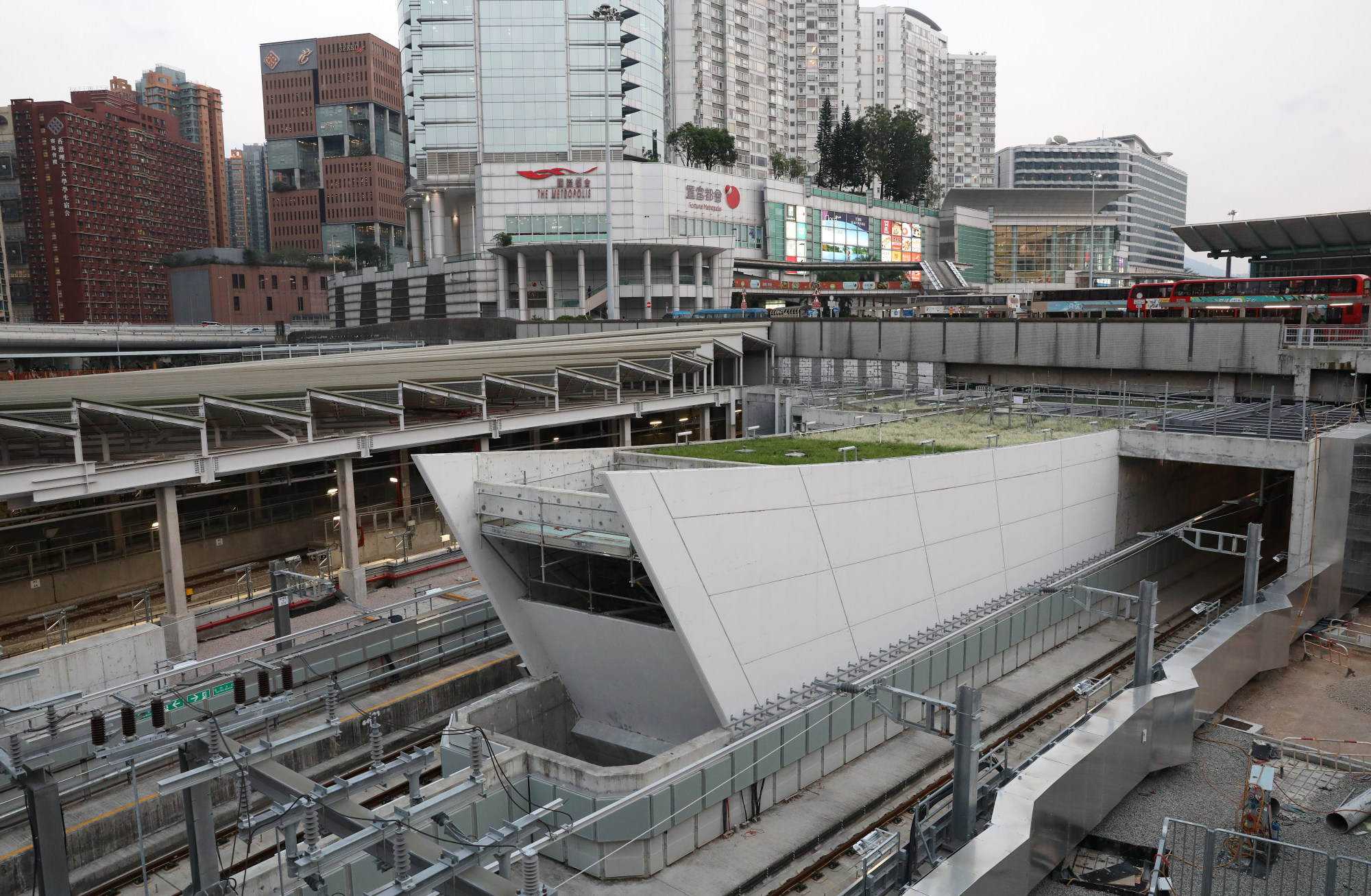
Hong Kong court fines Leighton Contractors HK$40,000 over shoddy work at Hung Hom MTR station
- Leighton Contractors (Asia) pleads guilty to violating Buildings Ordinance, after failing to adhere to approved plan in construction of space at MTR station
- Construction was part of Sha Tin-Central link, which cost nearly HK$100 billion and was delayed because of scandal
A leading construction company in Hong Kong has been fined HK$40,000 (US$5,100) for cutting corners while building the city’s most expensive rail link, which partly caused HK$2 billion in extra costs for the project.
Lawyers for Leighton Contractors (Asia) pleaded guilty at Kowloon City Court on Tuesday to violating the Buildings Ordinance. The company failed to adhere to an approved plan in the construction of a 1,410 sq ft space at Hung Hom MTR station, part of the Sha Tin-Central link which cost nearly HK$100 billion.
But neither Leighton nor others involved in the project were charged for other issues revealed during an independent inquiry into the scandal, such as jerry-built platforms at the station, unauthorised changes to the designs for supporting diaphragm walls and missing inspection documents.
Magistrate Kestrel Lam Tsz-hong said the firm had a social responsibility to complete the new link in accordance with construction guidelines.
But he agreed the substandard work involved in the case concerned a limited area and did not result in casualties or further defects such as cracks in larger structures.
The project’s safety was called into question in mid-2018 after it was revealed that some steel bars used for reinforcement were cut short during installation, which prevented them from being screwed into couplers on new platforms beneath the station.
The scandal led to an overhaul of the rail operator’s top management team and delayed the rail link project for more than a year.

Leighton’s prosecution concerned the fixing of reinforcement bars at a flooring slab of a variable refrigerant volume room at the station’s stabling sidings, the sidetracks where trains park.
A prosecution case summary said the bars were not fully affixed to the couplers when two engineers from the MTR Corp inspected the site on June 30, 2017.
The rail operator asked Leighton to rectify the situation before casting concrete into the slab, but workers nevertheless went ahead with the procedure later the same day.
The error only came to the government’s attention in May 2019 after an employee from the MTR Corp revealed to the Building Authority the construction irregularities at the station.
A government engineer found that the couplers could not adequately perform their designated functions because of the improper work, but the space’s stability remained sound.
“The use of couplers without prior consultation and acceptance constituted a deviation in a material way from the accepted plans,” said prosecutor Jasmine Ching Wai-ming in her written filing.
Defence lawyer Adrian Halkes said the violation involved a “technical” error in a small area, adding this was Leighton’s first offence in its many years of service in the city.
Magistrate Lam set a starting point of a HK$60,000 fine before reducing it by one-third to reflect the company’s guilty plea.
The court initially recorded a plea of not guilty from Leighton on a charge under Section 40(2A)(a)(ii) of the Buildings Ordinance, which alleged the firm permitted or authorised the incorporation of material that was not properly fixed.
The company eventually admitted a similar offence under Section 40(2A)(b) of the ordinance, which said the company “deviated in a material way from the work shown in plans approved by the Building Authority”.
Both charges carry the same maximum financial penalty of HK$1 million.
The Buildings Department on Tuesday night said that it would refer Leighton’s case to the Contractors’ Disciplinary Board for instigating disciplinary proceedings.
